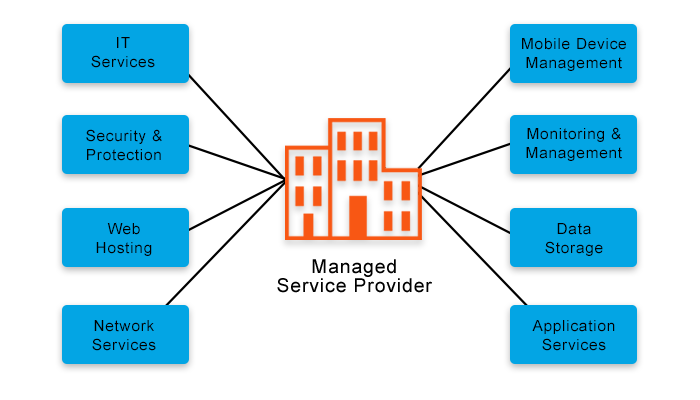How to Launch an EdTech Startup

The EdTech industry is rapidly evolving, offering unprecedented opportunities for innovation in education. In this digital age, launching an EdTech startup can be both challenging and rewarding. This article aims to guide aspiring entrepreneurs through the essential steps of creating a successful EdTech venture.
From identifying a unique market niche to understanding your target audience, we’ll explore the key strategies that can help turn your educational technology idea into a thriving business.
Table of Contents
Identifying Your Niche
The first step in launching an EdTech startup is identifying your niche. The EdTech market is vast, encompassing everything from early childhood learning apps to advanced learning management systems for universities. To stand out, you need to find a unique angle or a specific problem that your product can solve.
This might involve focusing on a particular age group, subject area, or learning style. Successful EdTech startups often emerge from a deep understanding of a specific educational need, providing solutions that are both innovative and effective.
The Role of Educational Leadership
Educational leadership plays a critical role in the development and success of an EdTech startup. Leaders with a strong background in education bring valuable insights into student learning needs and the educational landscape.
They are instrumental in driving the vision of the startup, ensuring that the product aligns with pedagogical principles and effectively meets the needs of learners and educators. Moreover, educational leadership skills are essential for building credibility and trust within the education community, which can be crucial for the adoption and success of the product.
Building a Strong Team
Behind every successful EdTech startup is a strong, multidisciplinary team. Your team should comprise individuals with diverse skills, including education experts, software developers, UI/UX designers, and business strategists.
When building your team, look for people who share your passion for education and technology and who bring complementary skills to the table. A collaborative team that can work together effectively to turn your vision into a viable product is a key asset for your startup.
Developing Your Product
Developing your EdTech product is a process that involves several stages, from conceptualization to prototyping. Start by clearly defining the problem your product aims to solve and how it addresses this need differently from existing solutions. Focus on user-centered design to ensure that your product is intuitive, engaging, and effective for your target audience.
Prototyping and iterative testing are crucial at this stage. Gather feedback from potential users and refine your product accordingly. Remember, a well-designed product that truly meets the needs of its users is more likely to succeed in the competitive EdTech market.
Understanding Your Market
Thorough market research is essential for understanding your target audience and the competitive landscape. Analyze trends in the EdTech sector, identify your potential customers, and understand their specific needs and preferences.
This might involve conducting surveys, interviews, or focus group discussions with educators, students, and other stakeholders in the education sector. Understanding your market will not only inform your product development but also help you tailor your marketing and sales strategies to effectively reach and engage your target audience.
Securing Funding
Securing funding is a critical step in launching your EdTech startup. There are various sources of funding available, including venture capital, angel investors, crowdfunding, and educational grants. To attract investors, you need a compelling business plan that clearly outlines your product, market analysis, business model, and growth potential.
Be prepared to pitch your idea with passion and clarity, demonstrating a deep understanding of the EdTech sector and your specific niche. Remember, investors are not just investing in your idea, but in you and your team as well. Building a strong network within the educational and entrepreneurial communities can also open doors to potential funding opportunities.
Regulatory Compliance and Data Security
In the world of EdTech, compliance with educational regulations and data security standards is paramount. Depending on your location and target market, there may be various laws and regulations regarding data privacy, student information protection, and digital accessibility that your product must comply with. Familiarize yourself with relevant legislation, such as the Children’s Online Privacy Protection Act (COPPA) in the U.S., and ensure your product adheres to these standards.
Prioritizing data security and ethical use of information not only protects your users but also builds trust and credibility for your brand.
Effective Marketing Strategies
An effective marketing strategy is crucial for the success of your EdTech startup. Start by identifying your unique value proposition and crafting a message that resonates with your target audience. Utilize digital marketing channels such as social media, content marketing, and email campaigns to reach educators, students, and decision-makers in the education sector.
Participating in educational conferences and networking events can also help you gain visibility and connect with potential customers and partners. Remember, the key is to communicate the educational benefits of your product and how it enhances the learning experience.
Launch and User Feedback
Launching your product is just the beginning. After the launch, it’s essential to gather and analyze user feedback. This feedback is invaluable for understanding how your product is being received and identifying areas for improvement.
Encourage users to provide honest feedback through surveys, interviews, and user testing sessions. Be responsive to this feedback and willing to make necessary adjustments to your product. A startup’s ability to listen to its users and adapt quickly is often a key factor in its long-term success.
Scaling Your Startup
Once your EdTech startup is successfully launched and you have a stable user base, it’s time to think about scaling. Scaling involves expanding your product’s reach, entering new markets, or adding new features or services.
This stage requires careful planning to ensure that your business infrastructure, from technology to customer support, can handle the growth. It’s also a time to revisit and possibly diversify your funding strategies to support this growth. Continuous market research and staying attuned to the evolving needs of the education sector will help you make informed decisions about the direction of your scaling efforts.
Conclusion
Launching an EdTech startup is a challenging yet rewarding journey that requires passion, perseverance, and a deep understanding of the education sector. From securing funding to navigating regulatory landscapes, and from effective marketing to scaling your business, each step is crucial in building a successful EdTech venture.
Remember that the heart of your startup is its ability to enhance educational experiences and outcomes. Stay focused on this mission, be adaptable to feedback and change, and you will have the foundation for a thriving business in the dynamic world of educational technology. This guide serves as a starting point, but the continuous learning and innovation inherent in the EdTech field will guide you through an exciting entrepreneurial journey.





